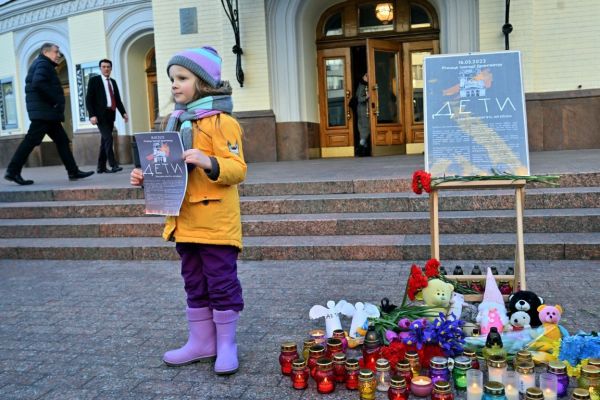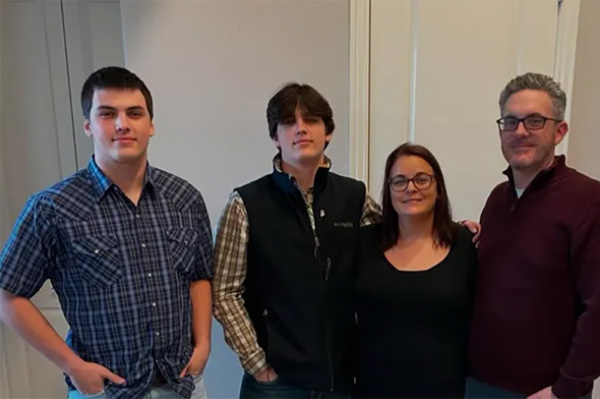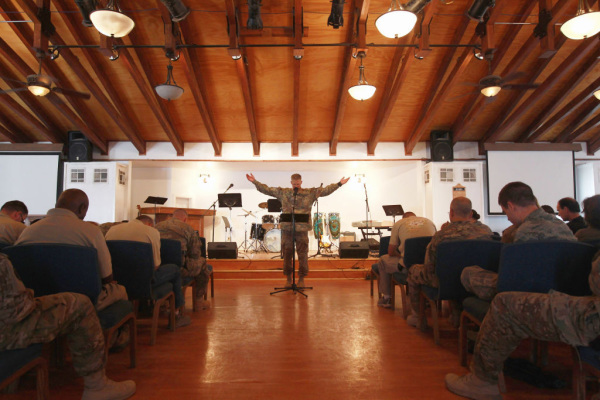Hillary's Pastor Problem
The pastor of the Methodist church that Bill and Hillary Clinton attended during his presidency is now defending Obama's retiring pastor Jeremiah Wright. This intervention will perhaps serve to remind that the Clinton's own church was once a source of national controversy.
"The Reverend Jeremiah Wright is an outstanding church leader whom I have heard speak a number of times," proclaimed the Rev. Dean Snyder in a statement he posted on the website of his Foundry United Methodist Church in Washington, D.C. "He has served for decades as a profound voice for justice and inclusion in our society. He has been a vocal critic of the racism, sexism and homophobia which still tarnish the American dream."
The Clintons attended Foundry faithfully during all 8 years of their time in Washington. The gothic sanctuary sits less than a mile north of the White House and is one of the capital city's most famously liberal congregations. Snyder is the successor to Dr. J. Philip Wogaman, who pastured during the Clinton years and who vigorously defended Bill Clinton during the Monica Lewinsky scandal, while also serving as one of Clinton's three spiritual counselors post-Monica.
Neither of the Clintons ever formally joined Foundry Church, retaining memberships in their respective Methodist and Baptist churches in Little Rock, Arkansas. It is not clear whether Hillary has attended Foundry at all since her 2004 election to the U.S. Senate. But the Rev. Snyder's public defense of the Rev. Wright was deemed sufficiently significant to get him on NBC News and MSNBC.
"To evaluate his dynamic ministry on the basis of two or three sound bites does a grave injustice to Dr. Wright, the members of his congregation, and the African-American church which has been the spiritual refuge of a people that has suffered from discrimination, disadvantage, and violence," Snyder insisted about Obama's outgoing pastor. Snyder hailed Wright as "an agent of racial reconciliation while proclaiming perceptions and truths uncomfortable for some white people to hear."
According to Snyder, "Those of us who are white Americans would do well to listen carefully to Dr. Wright rather than to use a few of his quotes to polarize. This is a critical time in America's history as we seek to repent of our racism. No matter which candidates prevail, let us use this time to listen again to one another and not to distort one another's truth."
Both Snyder and his predecessor at Foundry Church, Dr. Wogaman are both strongly on the left theologically and politically. But neither has been as flamboyant or openly incendiary as Wright. Perhaps they share many of Wright perspectives, but the more subdued atmosphere of white, liberal Mainline churches is not as conducive to Wright's style of volcanic rhetoric.
Yet Wogaman, during his tenure as the Clintons' pastor, was copiously on record with his own provocative views. A long-time seminary professor and former Democratic Party activist in California during the 1960's, Wogaman was vice president of and frequent spokesman for the Interfaith Alliance, the self-anointed Religious Left counterweight to the Christian Coalition. But he liked to boast that at Foundry, at least early in the Clintons' first term, that he equitably pastored both the Clintons and Republican leaders Bob and Elizabeth Dole, who had been attending Foundry for years under the ministry of Wogaman's predecessor, the Rev. Ed Bauman. But Wogaman's brand of liberal politics and theology became too much for the Doles, who were preparing for Bob Doles 1996 presidential run.
Elizabeth Dole was present at Foundry in early 1995 when Wogaman from the pulpit asked his congregation to pick up church materials opposing the Republican Party's "Contract with America" in the social hall after the service. The church bulletin urged the congregation "to take a close look at the Contract ... some [of whose] provisions have potentially devastating effects on the weakest elements of our society." Neither of the Doles ever returned to Foundry.
Several months later Cal Thomas, in his syndicated column, described Wogaman's left-leaning politics as giving "moral nurture" to President Clinton's policies. Citing some research I had done as his source, Thomas outlined the Methodist minister's long infatuation with left-leaning economic and social causes, and asked why Bob and Elizabeth Dole still affiliated with Foundry Church. The following Sunday, with Hillary Clinton in the congregation, Wogaman charged that Cal Thomas and myself were not simply targeting him, but also the President. "I think much of this was a political attack aimed at getting at President Clinton through the practice of his religion," he said, and then went on to blame the negative coverage on "the climate of the times in which we live." In a subsequent newspaper op-ed, Wogaman linked negative articles about his ministry to the Oklahoma City bombing. "People in the media don't plant bombs," he wrote. "But if they plant hatred and division, doesn't that affect the behavior of unstable hearers or readers?"
A few weeks later, the New York Times, the Washington Post, and the Associated Press all reported that the Doles were searching for a new church that would "more accurately reflect their traditional Christian beliefs." Wogaman later admitted that he had "grieved over their departure." But he should not have been surprised. A prolific author, Wogaman's leftist views, which often crept into his sermons, were amply recorded. In an earlier response to the "Contract with America," Wogaman had warned in 1995 that "it would be reprehensible for American society to abandon the poor." In other writings, he had lauded "Christian socialism," although not professing to be one himself. He told a 1992 conference that Soviet-style communism failed in part because it did not take socialism seriously enough. He also said that free marketers in the U.S. "must not prevent us from using aspects of socialism."
In a 1991 article entitled, "Human Rights: Christians, Marxists and Others m Dialogue," Wogaman wrote: "Whatever truth there is in [the] free enterprise model, it is best expressed, in modern conditions, with the mixed-economy, of the welfare state." In a column written a year earlier for Christian Century (headlined "Socialism's Obituary Is Premature") Wogaman warned that Marxism's collapse in Eastern Europe was not a judgment on "Christian socialism." He charged that "unrestrained laissez-faire capitalism" has created "social breakdowns," like "drug abuse, murder, unethical business practices, family breakups, and homelessness." He concluded, "Christian socialism's critique of the excesses and brutalities and idolatries of the free market still need to be heard." In 1989 Wogaman wrote in Theology & Public Policy, "Certainly U.S. economic policy will not become socialist in the foreseeable future. But it clearly needs to reverse the decline toward greater inequality." He recommended increased tax rates for the higher brackets, a progressive social security tax, "more generous" welfare programs to reverse Ronald Reagan's "abandonment of public assistance to the poor," and nationalized health care as a "public responsibility." Wogaman had already criticized Reagan in a 1986 book, Economics and Ethics, for his "over-reliance on the free market." In that same book Wogaman had also noted that while socialism may have failed in Mozambique and Cambodia, it "can claim modest but real economic success" in China and Cuba.
"The USSR is characteristic of the more tolerant Communist arrangements for religion," Wogaman wrote in his 1967 work, Protestant Faith and Religious Liberty. "In Russia there are specific constitutional guarantees of freedom of worship, and some provision has even been made for the upkeep of churches and theological seminaries." He wondered if "Christians in Russia or China are treated any worse than Marxists are treated in the United States."
Foundry Church's former pastor's geopolitical perceptions were hardly prescient. But unlike Rev. Wright, the retired but still very active Dr. Wogaman has not suggested that America deserved 9-11, or that AIDS was a U.S. Government conspiracy, or that FDR knowingly permitted Pearl Harbor to be bombed. Neither has his successor, Rev. Snyder. They seem to prefer more conventional bromides of the left. Why then did Snyder hail the irascibly paranoid Wright for proclaiming uncomfortable "perceptions and truths?" Can clergy on the Religious Left not disavow even the most deranged comments among their ranks?
________________________________________________
Mark D. Tooley directs the United Methodist committee at the Institute on Religion and Democracy in Washington, D.C.






















